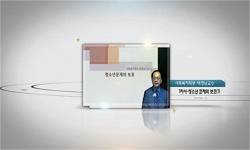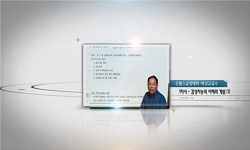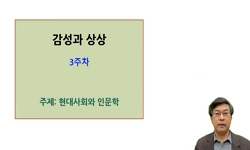Objective Studies using simulation-based programs for empathy enhancement have been conducted mostly for health profession students and medical care providers in Western countries. No empirical research has been conducted for non-medical care provider...
http://chineseinput.net/에서 pinyin(병음)방식으로 중국어를 변환할 수 있습니다.
변환된 중국어를 복사하여 사용하시면 됩니다.
- 中文 을 입력하시려면 zhongwen을 입력하시고 space를누르시면됩니다.
- 北京 을 입력하시려면 beijing을 입력하시고 space를 누르시면 됩니다.




A Simulation-Based Empathy Enhancement Program for Non-Medical Care Providers of Older Adults: A Mixed-Methods Study
한글로보기https://www.riss.kr/link?id=A107303679
- 저자
- 발행기관
- 학술지명
- 권호사항
-
발행연도
2021
-
작성언어
-
- 주제어
-
KDC
510
-
등재정보
SCIE,SSCI,SCOPUS,KCI등재
-
자료형태
학술저널
-
수록면
132-139(8쪽)
- DOI식별코드
- 제공처
-
0
상세조회 -
0
다운로드
부가정보
다국어 초록 (Multilingual Abstract)
Objective Studies using simulation-based programs for empathy enhancement have been conducted mostly for health profession students and medical care providers in Western countries. No empirical research has been conducted for non-medical care providers of older adults in community settings in Asian countries. The purposes of this mixed-methods study were: to explore experiences and perceived usability of non-medical care providers of older adults in a simulation-based empathy enhancement program; and to examine if the program is effective in improving empathy and relevant outcomes. Methods 104 non-medical care providers of older adults in South Korea participated in a simulation-based empathy enhancement program in 2018. Data were collected using self-reported questionnaires for effectiveness testing, a program evaluation questionnaire, and individual interviews and analyzed using statistical tests and thematic analysis. Results Care providers showed higher levels of empathy and lower levels of stress and burnout after the program participation (p<0.05). Qualitative findings supported the improved attitude and care strategies, increased empathy towards older adults, preparing for their own aging, and restoration of emotional stability through the participation in the program. Conclusion This study suggests that the simulation-based program is useful in promoting empathic responses of non-medical care providers working with older adults.
목차 (Table of Contents)
- INTRODUCTION METHODS RESULTS DISCUSSION
- INTRODUCTION METHODS RESULTS DISCUSSION
동일학술지(권/호) 다른 논문
-
- 대한신경정신의학회
- Ş,enay Kılınç,el
- 2021
- SCIE,SSCI,SCOPUS,KCI등재
-
- 대한신경정신의학회
- Hyun Ju Lim
- 2021
- SCIE,SSCI,SCOPUS,KCI등재
-
- 대한신경정신의학회
- Katsunori Toyoda
- 2021
- SCIE,SSCI,SCOPUS,KCI등재
-
- 대한신경정신의학회
- Su Hyun Bong
- 2021
- SCIE,SSCI,SCOPUS,KCI등재




 KCI
KCI 스콜라
스콜라






